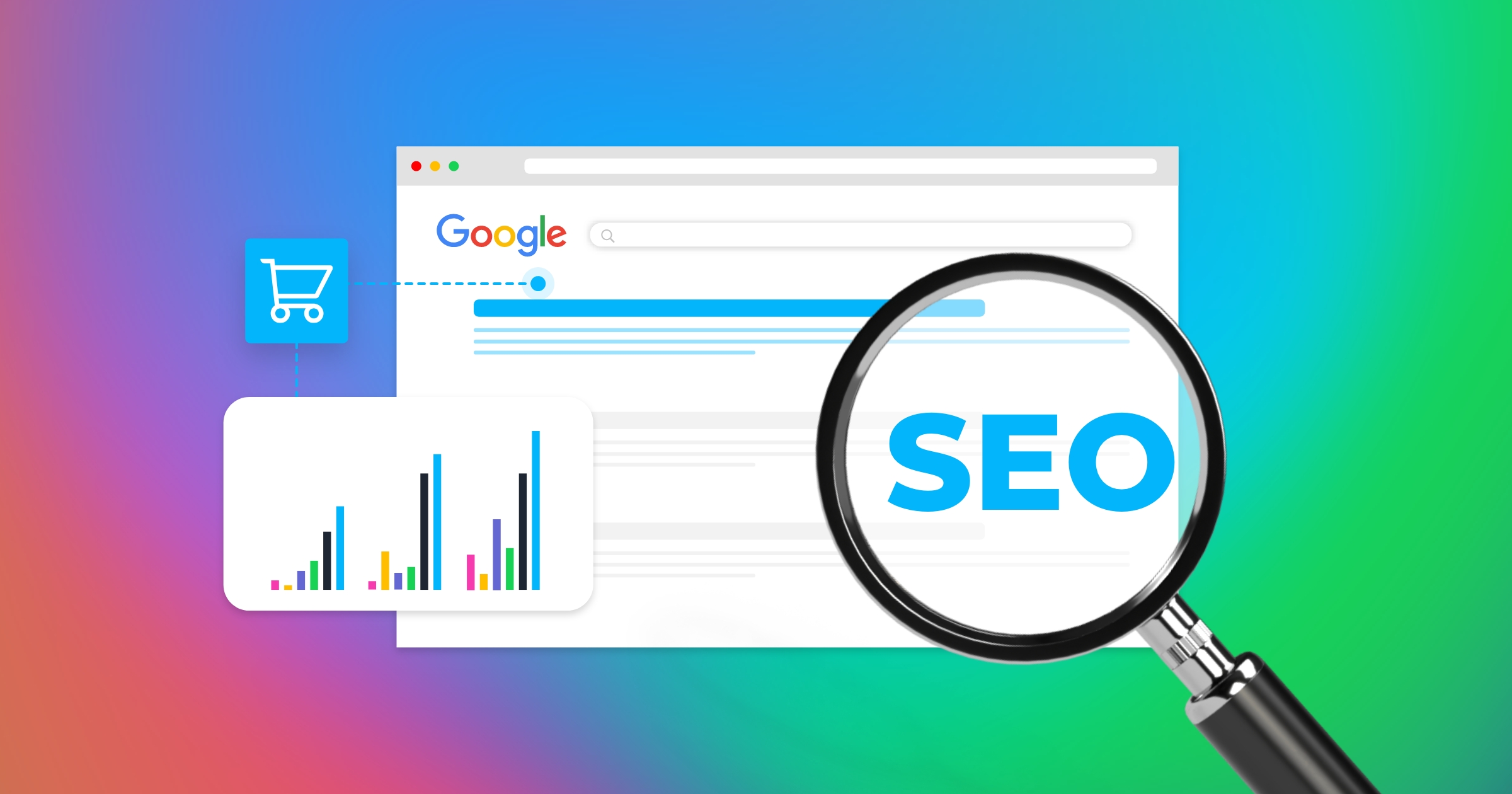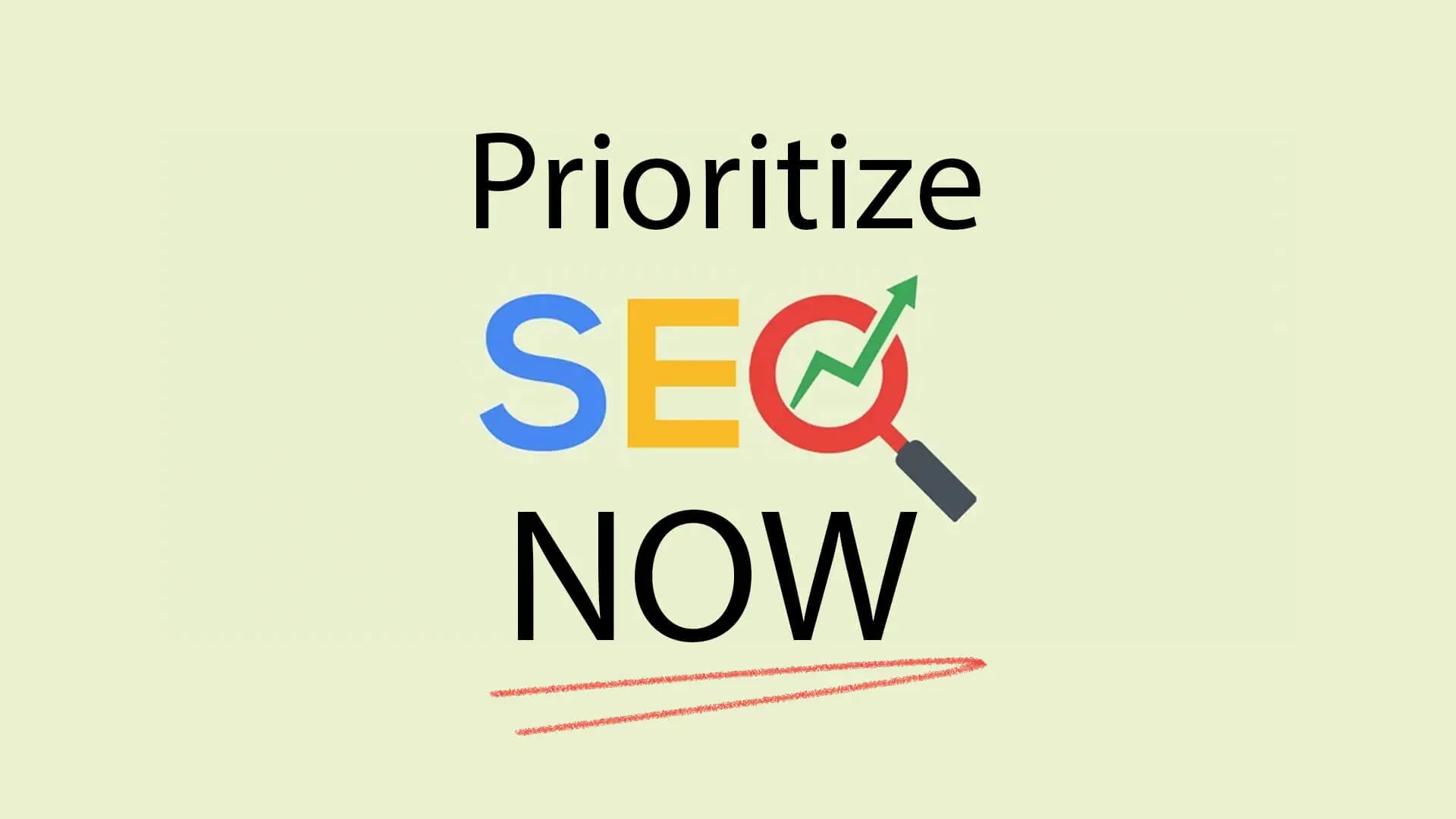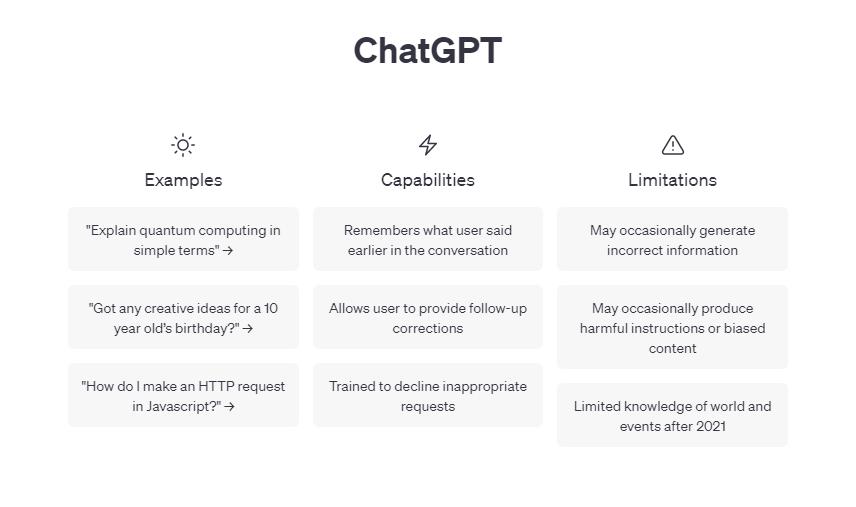Chat GPT has revolutionized how digital marketers create content, streamline customer interactions, and perform data analysis. With the rise of AI-powered tools, understanding the differences between Chat GPT Free vs Premium is crucial for maximizing efficiency and results. Whether you’re on a tight budget or looking to unlock advanced features, this guide will explore the benefits and limitations of both versions. You’ll discover how each option can impact your marketing strategy and which might be the best fit for your needs. Dive in to make an informed decision and elevate your digital marketing game.
Understanding Chat GPT: An Overview

Chat GPT has dramatically changed how we engage with artificial intelligence. Developed by OpenAI, it has become a staple in various fields, especially digital marketing. But what exactly is Chat GPT, and why has it gained such popularity?
What is Chat GPT?
Chat GPT, short for “Generative Pretrained Transformer”, is an AI model designed to understand and generate human-like text. It processes vast amounts of text data to predict and produce coherent and contextually relevant responses. Think of it as an extremely sophisticated and knowledgeable chatbot, capable of holding conversations on virtually any topic.
Development of Chat GPT
The journey of Chat GPT began with extensive research by OpenAI. The model has undergone several iterations, each more advanced than the last. Initially, it started with GPT-1, which laid the foundation for future models. GPT-2 and GPT-3 followed, with each version incorporating more data and complex algorithms, making the model smarter and more capable.
Applications of Chat GPT
Chat GPT isn’t just a tool for casual conversation; it’s a powerhouse for various applications:
- Content Creation: Bloggers, writers, and marketers use Chat GPT to generate high-quality content quickly.
- Customer Support: Businesses utilize it to automate responses to common customer queries, saving time and improving efficiency.
- Data Analysis: Chat GPT can help marketers analyze large datasets to extract valuable insights.
- Social Media Management: It assists in crafting engaging social media posts and responses, enhancing online presence.
Why Digital Marketers Should Care
As digital marketing continues to evolve, staying ahead of the curve is crucial. Chat GPT helps marketers:
- Save Time: Automates repetitive tasks, allowing marketers to focus on strategy and creativity.
- Increase Efficiency: Provides quick, accurate responses and content generation.
- Improve Engagement: Creates personalized and engaging content, boosting customer interaction.
Understanding the core functionalities and potential of Chat GPT can significantly enhance how digital marketers approach their work. Whether you’re weighing the options between Chat GPT Free vs Premium, knowing the basics sets a solid foundation for making an informed decision.
Significance of Chat GPT for Digital Marketers

In the bustling world of digital marketing, staying ahead of the competition is vital. Tools like Chat GPT are becoming indispensable for marketers aiming to streamline their processes and boost their effectiveness. But what makes Chat GPT such a game-changer for digital marketers?
Enhancing Content Creation
Creating engaging and high-quality content consistently can be a challenging task. Here’s where Chat GPT steps in to make a significant difference.
- Efficiency: By automating the content creation process, Chat GPT saves time, allowing marketers to produce blog posts, social media updates, and email newsletters in a fraction of the time it would typically take.
- Creativity Boost: It can generate fresh ideas and unique perspectives that might not be immediately apparent to human writers. This ensures that content remains engaging and relevant.
- SEO Optimization: Chat GPT can be programmed to include specific keywords, like “Chat GPT Free vs Premium,” ensuring that the content ranks well on search engines and reaches the intended audience.
Streamlining Customer Interactions
Customer engagement is at the heart of successful digital marketing. Chat GPT is a powerful ally in this regard, automating and enhancing customer interactions across various platforms.
- 24/7 Availability: With Chat GPT, businesses can provide round-the-clock customer service, answering queries and solving issues even outside regular business hours.
- Personalization: The AI can tailor responses based on customer data, making interactions more personal and relevant. This level of customization can significantly improve customer satisfaction and loyalty.
- Scalability: Whether a business deals with hundreds or thousands of customer interactions, Chat GPT can handle the volume without compromising on quality.
Augmenting Data Analysis
Data is the backbone of informed marketing strategies. Chat GPT can sift through vast amounts of data and provide valuable insights, helping marketers make data-driven decisions.
- Trend Analysis: The AI model can identify trends and patterns within data sets that might take a human much longer to spot. This helps in making timely and strategic decisions.
- Sentiment Analysis: By analyzing customer feedback and social media interactions, Chat GPT can gauge public sentiment, allowing marketers to adjust campaigns and strategies accordingly.
- Performance Metrics: It can generate reports and summaries that highlight key performance metrics, offering a clear view of what’s working and what needs improvement.
Innovating Social Media Management
Social media is a critical component of digital marketing. Managing these platforms effectively is essential, and Chat GPT offers notable benefits in this area.
- Content Scheduling: By automating the scheduling of posts, marketers ensure consistent engagement without the need for constant oversight.
- Engagement Enhancement: Chat GPT can draft captivating social media posts and responses that keep the audience engaged and interested.
- Crisis Management: In the event of a PR crisis, Chat GPT can provide quick and well-crafted responses to manage the situation effectively.
Driving Campaign Efficiency
Marketing campaigns require meticulous planning and execution. Chat GPT can enhance the efficiency of these campaigns in multiple ways.
- A/B Testing: It can help in creating variations of ads and content for testing, enabling marketers to identify the most effective versions.
- Budget Optimization: By analyzing spending patterns and campaign performance, Chat GPT can suggest adjustments that maximize ROI.
- Targeting Precision: The AI’s ability to process and analyze data allows for more precise targeting of ads, ensuring that messaging reaches the right audience.
With these advantages, it’s clear why Chat GPT holds such profound significance for digital marketers. Its ability to enhance content creation, streamline customer interactions, augment data analysis, innovate social media management, and drive campaign efficiency makes it an invaluable tool in the digital marketer’s arsenal. Whether you’re considering Chat GPT Free or Premium, understanding its impact can help you harness its full potential to elevate your marketing strategy.
Features of Chat GPT Free

Chat GPT Free offers a host of features that are particularly appealing to digital marketers who are starting out or are working with limited budgets. This section will highlight what Chat GPT Free can do for you and where it might fall short, helping you decide if it meets your needs.
Basic Functionalities
The free version of Chat GPT provides a range of basic functionalities that can be quite useful for digital marketers. Here are some of the key features:
- Text Generation: Chat GPT Free can generate human-like text based on the prompts you provide. Whether you need a blog post, social media update, or email draft, this tool can help create engaging content quickly.
- Content Ideas: Struggling with writer’s block? Use Chat GPT Free to brainstorm content ideas. It can suggest topics, headlines, and even opening lines to get you started.
- Question and Answer: You can use Chat GPT Free to answer common customer questions. This can be particularly helpful for improving your FAQs or automating customer support.
- Summarization: If you have lengthy articles or reports, the free version can summarize these documents, making it easier to absorb and share key points.
- Language Translation: While it’s not as sophisticated as professional translation services, Chat GPT Free can help you translate text to various languages, facilitating better communication with a global audience.
These features provide a solid foundation for any digital marketer, helping automate some of the more time-consuming tasks and allowing you to focus on strategy and creativity.
Limitations of Chat GPT Free
However, it’s important to be aware of the limitations and constraints you might face when using the free version of Chat GPT. Here are some of the key drawbacks:
- Usage Limits: One of the most significant constraints is the usage limit. The free version often has a daily or monthly cap on the number of requests you can make, which can be a hindrance if you rely heavily on the tool.
- Response Time: During peak times, you might experience slower response times as servers get overloaded. This can be frustrating when you’re working on tight deadlines.
- Basic Support: Customer support for the free version is usually minimal. You might have to rely on community forums or limited documentation for troubleshooting.
- Reduced Features: Advanced functionalities like customized AI models, extensive API access, and higher-tier analytics are generally reserved for premium users. The free version offers a more limited set of capabilities.
- Quality and Accuracy: While Chat GPT Free is competent, it may not always produce the highest quality or most accurate content. You might find yourself doing more manual editing and fact-checking compared to the premium version.
Understanding these limitations can help set realistic expectations and ensure that you use Chat GPT Free most effectively within its constraints. Knowing both the strengths and weaknesses allows you to better evaluate if it’s worth upgrading to the premium version or if the free features meet your needs sufficiently.
Features of Chat GPT Premium

Investing in Chat GPT Premium offers a range of advanced functionalities tailored to meet the needs of digital marketers seeking to elevate their game. This section dives into the enhanced features and highlights the numerous benefits that come with a premium subscription.
Enhanced Functionalities
Chat GPT Premium is packed with advanced functionalities that go beyond what the free version offers. Here’s a detailed look at the additional features available:
- Higher Usage Limits: One of the most significant advantages of the premium version is the increased usage limits. Whether you need to generate a large volume of content or run multiple campaigns, higher limits ensure you won’t hit a cap that halts your work.
- Faster Response Times: Premium users enjoy priority access to servers, meaning you experience quicker response times even during peak hours. This can be a game-changer when working on tight deadlines.
- Advanced Customization: With premium, you can fine-tune the AI to better suit your specific requirements. Customizable settings allow you to adjust the tone, style, and complexity of the generated content, ensuring it aligns perfectly with your brand voice.
- Exclusive Access to New Features: Premium subscribers often get early access to new functionalities and improvements. Stay ahead of the curve by leveraging the latest advancements before they’re available to free users.
- Enhanced API Access: For tech-savvy marketers, premium provides more extensive API access. This allows for deeper integration with your own tools and systems, enhancing workflow automation.
- Robust Analytics: Gain access to advanced analytics that provide deeper insights into performance metrics. Detailed reports can help you understand engagement levels, conversion rates, and other critical KPIs.
- Priority Support: Premium users receive dedicated customer support. Whether you need troubleshooting assistance or have questions about maximizing the tool’s capabilities, priority support ensures you get timely and effective help.
Benefits of Chat GPT Premium
The premium version isn’t just about enhanced features; it’s about delivering tangible benefits that significantly improve your digital marketing efforts. Here’s how upgrading to Chat GPT Premium can transform your workflow:
- Efficiency and Productivity: Higher usage limits and faster response times enable you to accomplish more in less time. Imagine producing weeks’ worth of content in just a few days, freeing you up to focus on other strategic activities.
- Quality and Precision: Advanced customization ensures that the AI-generated content is not only relevant but also high-quality. Say goodbye to extensive manual edits and fact-checks; the content you receive is polished and ready to go.
- Strategic Advantage: Early access to new features allows you to experiment with cutting-edge tools that competitors might not yet be using. This can provide a significant strategic advantage in a highly competitive landscape.
- Seamless Integration: Enhanced API access means you can integrate Chat GPT Premium with your existing marketing tools seamlessly. Whether it’s automating email campaigns, social media posts, or data analysis, integration simplifies and streamlines your processes.
- Data-Driven Decisions: Advanced analytics offers deeper insights, enabling you to make data-driven decisions. Understand what’s working and what’s not, and adjust your strategies accordingly to maximize ROI.
- Reliable Support: With priority support, you never have to worry about downtime or unresolved issues. Quick and efficient customer service ensures that you can maintain your workflow without interruptions.
Choosing Chat GPT Premium is like selecting a high-performance vehicle over a standard model. The investment pays off in terms of enhanced capabilities, improved efficiency, and strategic advantages. For digital marketers, the decision to upgrade can result in better content, more effective campaigns, and ultimately, a stronger ROI.
With these enhanced functionalities and clear benefits, the premium version of Chat GPT stands out as a powerful tool for digital marketers ready to take their efforts to the next level. Whether you’re aiming to produce high-quality content faster or gain deeper insights into your campaigns, upgrading to Chat GPT Premium equips you with the necessary tools to excel.
Comparing Chat GPT Free vs Premium
Understanding the differences between Chat GPT Free and Premium can help digital marketers decide which version best suits their needs. Let’s dive into a detailed comparison.
Cost Analysis: Compare the costs involved in using the free version versus the premium version
One of the first questions digital marketers ask when considering Chat GPT is the cost. Both free and premium versions come with their own price tags, but how do these compare?
Chat GPT Free: The free version comes at no monetary cost but includes limitations that could indirectly cost you time and productivity. You might encounter usage caps, slower response times, and fewer features, which can all impact the efficiency of your workflow.
Chat GPT Premium: On the other hand, the premium version has a subscription fee. While the exact cost can vary based on your specific needs and the plan you choose, investing in the premium version can save you time and offer additional features. Think of it as paying for a tool that enhances your capacity to deliver high-quality content and services more efficiently.
- Free Version Cost: $0
- Premium Version Cost: Varies (typically subscription-based)
The investment in Chat GPT Premium may seem steep at first glance, but consider what you get in return. Faster response times, higher usage limits, and advanced features can justify the expense if your workload demands these enhancements.
Performance Differences: Analyze the performance differences between the free and premium versions
The performance of Chat GPT is another critical factor to consider. Here’s how the free and premium versions compare in terms of performance:
Chat GPT Free: While the free version provides basic functionalities, it often comes with performance bottlenecks. You might experience slower response times during peak usage periods, and the AI may not always produce the most polished content, requiring more manual editing.
Chat GPT Premium: Premium users benefit from improved performance in several ways. The response times are significantly quicker, even during high-demand periods. The quality of output is generally higher, thanks to advanced customization options that let you tailor the content to better fit your brand’s voice and style. Plus, premium users often gain early access to new features and improvements.
Key Performance Differentiators:
- Response Time: Premium offers faster responses.
- Quality of Output: Higher in the premium version due to advanced customization.
- Server Priority: Premium users get priority, reducing wait times.
By choosing the premium version, you can avoid the frustrations associated with slower response times and less polished content, allowing you to maintain a seamless and efficient workflow.
User Experience: Compare the user experience of both versions
The user experience can make or break your decision to upgrade. Here’s a look at how the free and premium versions of Chat GPT stack up.
Chat GPT Free: For those just starting out or working on simpler projects, the free version offers a straightforward interface and basic support options. However, the limitations in usage and performance can lead to a less fluid experience, especially when you’re under time constraints.
Chat GPT Premium: The premium version aims to provide a superior user experience in several ways. Enhanced API access means you can integrate the AI tool seamlessly with your existing systems, offering a smoother workflow. Dedicated customer support ensures that any issues or questions you have are addressed promptly, minimizing downtime and frustration.
User Experience Highlights:
- Ease of Use: Both versions are user-friendly, but premium offers more advanced features.
- Support: Basic for free users; premium users get dedicated, priority support.
- Integration: More extensive API access for premium users.
The premium experience ensures that you have the support and integration capabilities needed to make the AI tool a seamless part of your digital marketing strategy. For complex tasks and higher-volume needs, the improved user experience of the premium version can be a significant advantage.
When deciding between Chat GPT Free vs Premium, it all boils down to your individual needs and resources. The free version can be a good starting point, but for those looking to maximize efficiency and quality, the premium version offers tangible benefits that can elevate your digital marketing efforts to new heights.
Use Cases for Digital Marketers: Free vs Premium
When it comes to choosing between Chat GPT Free and Premium, digital marketers must consider their specific needs and goals. Both versions have their own unique advantages and can be leveraged in different scenarios.
Free Version Use Cases
The free version of Chat GPT can be incredibly useful for digital marketers who are just getting started or working with limited resources. Here are some scenarios where the free version might be sufficient:
- Content Ideation: When you’re in the brainstorming phase and need fresh ideas for blog posts, social media updates, or marketing campaigns, the free version can generate a plethora of suggestions.
- Basic Copywriting: For those who need initial drafts or basic copy for short-form content, such as social media posts or email newsletters, Chat GPT Free can deliver quick and satisfactory results.
- Customer Interaction Scripts: If you need help drafting responses for customer inquiries or creating a basic FAQ section, the free version can help automate responses to common questions.
- Content Summarization: When you need to summarize lengthy articles, reports, or other documents into key points, the free version can handle these tasks effectively.
- Proofreading and Editing: The free version can also help in proofreading and editing, catching basic grammatical errors and suggesting stylistic improvements.
While the free version offers these essential functionalities, it does come with some limitations, such as usage caps and slower response times, which might hinder productivity for more demanding tasks.
Premium Version Use Cases
For digital marketers looking to elevate their efforts and achieve higher levels of efficiency and quality, the premium version of Chat GPT offers significant advantages. Here are some scenarios where the premium version shines:
- High-Volume Content Creation: If you need to generate large volumes of high-quality content, such as multiple blog posts, comprehensive social media campaigns, or detailed reports, the premium version’s higher usage limits and faster response times are invaluable.
- Advanced Customization: For brands that require content tailored to specific tones, styles, or complexity levels, Chat GPT Premium offers customization options that ensure the output aligns perfectly with your brand voice.
- Data Analysis and Insights: When you need to dive deep into data analysis, the premium version’s enhanced capabilities can extract valuable insights from large datasets, helping you make data-driven decisions.
- API Integration: For marketers who rely on seamless integration with other tools and platforms, the premium version offers extensive API access, enabling deeper workflow automation and improved efficiency.
- A/B Testing and Optimization: Premium provides the flexibility to create multiple variations of content for A/B testing, allowing you to optimize your campaigns for better performance.
- Priority Support and Early Access: Premium users benefit from dedicated customer support and get early access to new features and updates, ensuring you stay ahead of the curve.
Choosing the premium version allows digital marketers to unlock advanced functionalities, save time, and deliver higher-quality content, making it a worthy investment for those aiming to maximize their marketing efforts.
In summary, while Chat GPT Free can be a great starting point for basic tasks and limited budgets, upgrading to Chat GPT Premium offers a suite of advanced features that can significantly enhance your digital marketing strategy. Whether you need high-volume content creation, advanced customization, or comprehensive data analysis, the premium version equips you with the tools to excel in a competitive landscape.
Testimonials and Case Studies
When evaluating Chat GPT Free versus Premium, understanding real-world applications can provide invaluable insights. Here, we’ll share testimonials and case studies from digital marketers who have harnessed both versions to improve their strategies.
Testimonials
Laura M., Content Strategist at Bright Studio “Using Chat GPT Free was a game-changer for our content ideation process. We suddenly had endless ideas for blog posts and social media campaigns. However, the content needed significant tweaking. When we upgraded to Chat GPT Premium, the difference was immediately obvious. Not only was the quality of the generated content better, but the speed and customization options saved us hours each week.”
David R., CEO at Tech Innovate “Our customer support team used Chat GPT Free to automate FAQ responses, which lightened our workload. But as our volume grew, the usage caps became a bottleneck. Switching to Premium allowed us to handle a higher number of inquiries seamlessly, improving our response times and customer satisfaction rates. Plus, the advanced features helped us tailor responses to individual customer needs.”
Jessica T., Social Media Manager at Trendy Ads “We started with Chat GPT Free to draft our social media posts and it was quite effective for basic tasks. But when we needed more polished, brand-specific content, we invested in Premium. The customization features allowed us to maintain a consistent brand voice, and priority support helped us resolve issues quickly. It elevated our whole social media strategy.”
Case Studies
Case Study 1: Boosting Blog Efficiency with Chat GPT Premium
Company: Organic Health Blog Challenge: The team struggled with generating high-quality blog content quickly while maintaining a consistent brand voice. Solution: They began with Chat GPT Free to brainstorm topics and draft initial blog posts. While this was helpful, each post required substantial editing, slowing down their workflow. Outcome with Premium: Upgrading to Chat GPT Premium allowed them to produce high-quality, well-researched blog posts that needed minimal editing. The faster response times and higher usage limits enabled them to publish more frequently, increasing their monthly blog output by 50%.
Case Study 2: Enhanced Customer Engagement through Chat GPT Premium
Company: E-Commerce Store – Fashion Forward Challenge: The store needed to improve customer interaction on their website and social media channels without increasing team size. Solution: Initially, they used Chat GPT Free to handle basic customer service queries and automate social media responses. This helped, but the volume soon exceeded the free version��s capacity. Outcome with Premium: By switching to Chat GPT Premium, they could handle a higher volume of queries without delays. The advanced customization options allowed them to provide personalized responses, which increased customer satisfaction scores by 30%.
Case Study 3: Streamlining Data Analysis
Company: Marketing Agency – AdVantage Challenge: The agency needed to sift through massive datasets to extract insights for client campaigns but found the manual process too time-consuming. Solution: They used Chat GPT Free to assist with basic data analysis, which was helpful but often required additional manual interpretation. Outcome with Premium: The enhanced capabilities of Chat GPT Premium allowed the agency to automate complex data analysis tasks. The advanced analytics features provided deeper insights into campaign performance, improving their strategy refinement and ultimately increasing client ROI by 20%.
Key Takeaways
These testimonials and case studies illustrate that while Chat GPT Free offers valuable basic functionalities, the premium version significantly enhances efficiency, quality, and customization. Digital marketers who upgrade to Chat GPT Premium can handle higher volumes, produce more polished content, and gain deeper insights, making it a worthy investment for those serious about elevating their marketing game.
Consider these real-world examples when deciding whether to stick with Chat GPT Free or move to Chat GPT Premium. The right choice can make a substantial difference in your digital marketing strategy, ensuring you stay competitive and effective in a constantly evolving landscape.
How to Decide Which Version is Right for You
Choosing between Chat GPT Free vs Premium can be a pivotal decision for digital marketers. This section will guide you through assessing your unique needs and considering your budget to determine the best fit for your marketing strategy.
Assessing Your Needs
Before making a decision, it’s crucial to understand what your business or personal requirements are. Ask yourself these key questions:
- Volume of Content: How much content do you need to produce on a regular basis? If you’re generating high volumes of content, the premium version might be necessary to avoid usage caps.
- Quality of Output: Do you need highly polished, brand-specific content? Customization features in the premium version can significantly improve the quality of your output.
- Response Time: Are you working with tight deadlines? Faster response times with the premium version can save you valuable hours.
- Integration Needs: Do you need to integrate Chat GPT with other tools or platforms? The enhanced API access in the premium version can facilitate smoother workflows.
- Customer Interactions: How crucial is personalized customer communication for your business? The premium version’s advanced features can help tailor interactions to increase customer satisfaction.
- Data Analysis: Do you rely heavily on data analysis for your campaigns? The premium version offers more robust analytics and insights capabilities.
Taking a careful look at these aspects can help you assess whether the free version meets your needs or if the premium version’s additional functionalities are a better fit.
Budget Considerations
Budget is a major factor in deciding between Chat GPT Free vs Premium. Here’s how to evaluate whether the investment is justified:
- Cost vs. Benefit: Calculate the potential return on investment. For example, if the premium version saves you significant time and increases the quality of your output, it might justify the subscription fee.
- Current Expenditure: Compare your current costs related to content creation, customer service, and data analysis. If you’re spending a lot on these areas, the premium version could offer a cost-effective alternative.
- Scalability: Consider your future needs. If you plan to scale your operations, investing in the premium version now can prepare you for growth without future disruptions.
- Trial Periods: Utilize any trial periods or money-back guarantees that OpenAI offers to test the premium version. This can give you a firsthand experience of the benefits without a long-term commitment.
To make this easier, let’s look at a simple checklist to help you decide:
Chat GPT Version Decision Checklist:
- Content Volume:
- Low (<10 pieces/week) ➜ Free
- High (>10 pieces/week) ➜ Premium
- Quality Requirements:
- Basic/Acceptable ➜ Free
- High/Professional ➜ Premium
- Budget:
- Very Tight ➜ Free
- Allocated Funds for Tools ➜ Premium
- Integration:
- Minimal ➜ Free
- Extensive ➜ Premium
- Customization:
- Not Important ➜ Free
- Crucial ➜ Premium
- Response Time:
- Flexible ➜ Free
- Critical ➜ Premium
By matching your answers to the checklist, you can make a more informed decision tailored to your specific needs and resources.
Whether you opt for Chat GPT Free or Premium, the right choice will depend on balancing your unique requirements with the budget you have available. Each version has its strengths, and understanding these can help you optimize your digital marketing efforts effectively.
Getting Started with Chat GPT
Chat GPT, by OpenAI, has become a cornerstone for many digital marketers looking to streamline content creation and enhance customer interactions. Whether you opt for the free or premium version, getting started with Chat GPT is a straightforward process. Here’s a step-by-step guide to help you set up and start using both versions efficiently.
Creating an OpenAI Account
Before you can dive into using Chat GPT, you’ll need to create an account with OpenAI. Follow these simple steps:
- Visit the OpenAI Website: Go to OpenAI’s official website.
- Sign Up: Click on the “Sign Up” button. You’ll need to provide your email address and create a password.
- Verify Your Email: OpenAI will send a verification email to the address you provided. Click on the verification link to complete the process.
- Log In: Once verified, log in to your new OpenAI account.
Exploring the Dashboard
After logging in, you’ll be directed to the OpenAI dashboard. This is where you can access various tools, including Chat GPT.
- Navigate to Chat GPT: Locate the Chat GPT option in the dashboard menu.
- Familiarize Yourself: Spend a few minutes exploring the interface. Get to know the different sections and what functionalities are offered.
Using Chat GPT Free
The free version of Chat GPT offers a set of basic functionalities to get you started. Here’s how to begin using it:
Accessing the Free Version
- Select the Free Tier: On the dashboard, choose the Chat GPT Free option.
- Enter Your First Prompt: Click on the input box and type your first prompt. For example, you might type, “Generate a list of blog post ideas for digital marketing.”
- Review the Output: Chat GPT will generate a response based on your prompt. Review the output and make any necessary changes.
- Save or Copy the Content: Once satisfied with the generated text, you can copy it to your clipboard or save it to a document.
Tips for Optimal Use
- Specific Prompts: The more specific your prompt, the better the output. Instead of “Write a blog post,” try “Write a 500-word blog post about the benefits of using AI in digital marketing.”
- Experiment Frequently: Don’t be afraid to experiment with different types of prompts to see what works best for your needs.
Upgrading to Chat GPT Premium
If you find the free version limiting and want to access advanced features, upgrading to Chat GPT Premium is your next step. Here’s how to make the switch:
Subscribing to Premium
- Navigate to Subscription Options: In the dashboard, look for the subscription or upgrade option.
- Choose a Plan: Select a premium plan that fits your budget and needs. OpenAI usually offers monthly and yearly plans.
- Enter Payment Details: Provide your payment information to complete the subscription process.
- Confirm Your Subscription: Once the payment is processed, you’ll receive a confirmation email, and your account will be upgraded to premium.
Using Premium Features
- Access Premium Tools: Navigate to the premium section of Chat GPT. Here, you’ll find enhanced functionalities like higher usage limits and faster response times.
- Customizing Your AI: Take advantage of the customization options. Adjust the tone, style, and complexity of the AI-generated content to better match your brand’s voice.
- Integrate with Other Tools: Utilize the enhanced API access to integrate Chat GPT with your existing marketing tools. This can help automate processes and improve efficiency.
- Monitor Performance: Use the detailed analytics available to premium users to track performance metrics and optimize your strategies.
Example: Generating Content Ideas
Step-by-Step for Free Version:
- Log in: Access your OpenAI account and open Chat GPT Free.
- Enter a Prompt: Type “Give me 10 blog post ideas for a digital marketing blog.”
- Review Ideas: Evaluate the list provided and select suitable topics.
- Save List: Copy the list and save it for further development.
Step-by-Step for Premium Version:
- Log in to Premium: Access your upgraded OpenAI account.
- Customize Prompt: In the premium interface, type “Generate 10 highly engaging blog post ideas for a digital marketing blog targeting small businesses using AI.”
- Adjust Tone and Style: Use customization features to refine the style and tone of the ideas.
- Save and Analyze: Copy the ideas and use the built-in analytics to determine which topics might perform best based on past data.
Making the Most of Both Versions
Regardless of whether you choose Chat GPT Free or Premium, maximizing its potential requires regular practice and experimentation. Here are a few tips to help you get the most out of either version:
- Regular Use: The more you use Chat GPT, the better you’ll understand its capabilities and limitations.
- Feedback Loops: Share the generated content with colleagues or clients and gather feedback to improve future prompts.
- Stay Updated: Keep an eye on updates from OpenAI, as new features and improvements are rolled out frequently.
By following these steps, you can efficiently get started with Chat GPT and integrate it into your digital marketing toolkit, enhancing your content creation process and overall marketing strategy. Whether you stick with the free version or upgrade to the premium, both offer valuable tools to elevate your work.
Maximizing the Benefits of Chat GPT

In the rapidly evolving landscape of digital marketing, leveraging the full potential of Chat GPT can set you apart from the competition. Whether you’re using the free or premium version, there are strategies and tips you can employ to get the most out of this advanced AI tool. Let’s explore practical ways to maximize the benefits of Chat GPT for your marketing efforts.
Tailoring Content to Your Audience
Understanding your target audience is crucial for any marketing strategy. Chat GPT can help you create content that resonates with your readers and drives engagement.
- Define Clear Audience Personas: Before generating content, outline detailed audience personas. Consider factors like age, gender, interests, and pain points. For instance, if your audience includes small business owners, prompt Chat GPT to produce content that appeals to their specific challenges and needs.
- Personalize Communication: Use Chat GPT to craft personalized messages based on customer data. Tailored email newsletters and personalized social media interactions can significantly boost engagement and loyalty.
Enhancing SEO with Chat GPT
SEO is a critical component of digital marketing. Chat GPT can be a powerful ally in optimizing your content for search engines, helping you to rank higher and attract more traffic.
- Keyword Integration: Start by conducting keyword research to identify relevant terms like “Chat GPT Free vs Premium.” Input these keywords into your prompts to ensure the generated content is SEO-friendly.
- Meta Descriptions and Titles: Use Chat GPT to craft compelling meta descriptions and titles, which are essential for improving click-through rates. For example, prompt the AI to generate a catchy and informative title for your latest blog post.
- Content Structuring: Properly structured content improves readability and SEO. Ask Chat GPT to generate headings, subheadings, and bullet points to break down complex information into digestible sections.
Streamlining Content Creation
Creating high-quality content consistently can be challenging. Chat GPT provides an efficient solution to streamline this process, allowing you to maintain a steady flow of fresh, engaging material.
- Blog Posts and Articles: Prompt Chat GPT to write comprehensive blog posts and articles on various topics. Provide detailed instructions to ensure the content aligns with your brand’s voice and style.
- Social Media Content: Generate creative and engaging social media posts. Use the customization options in Chat GPT Premium to tailor the tone and style to match your brand personality.
- Email Marketing: Automate the creation of email newsletters. Generate introductory texts, body content, and call-to-action prompts, ensuring your emails are cohesive and captivating.
Automating Customer Interactions
Efficient customer interaction is vital for maintaining a positive brand image. Chat GPT can help automate responses, ensuring timely and accurate communication.
- Chatbots for Customer Support: Set up chatbots powered by Chat GPT to handle common customer queries and provide instant support. This can free up your team to focus on more complex issues.
- Personalized Responses: Use Chat GPT Premium’s advanced customization features to generate personalized replies. For instance, create tailored follow-up emails based on customer interaction history.
Leveraging Data Analysis
Data-driven decision-making can enhance the effectiveness of your marketing strategies. Chat GPT can assist in analyzing data and providing actionable insights.
- Trend Identification: Prompt Chat GPT to analyze large datasets and identify emerging trends. This can help you stay ahead of the curve and tailor your strategies accordingly.
- Customer Sentiment Analysis: Use Chat GPT to analyze customer reviews and social media comments. Understanding customer sentiment can guide you in refining your products or services.
- Performance Metrics: Generate detailed reports on key performance indicators (KPIs) such as website traffic, engagement rates, and conversion rates. Use these insights to tweak your ongoing campaigns for better results.
Advanced Use Cases
For those using Chat GPT Premium, advanced features can significantly enhance your digital marketing efforts.
- Content Customization: Tailor the AI-generated content to match your specific brand voice. This ensures consistency across all your marketing channels.
- API Integration: Integrate Chat GPT with your existing tools and systems for a seamless workflow. Automate tasks such as content scheduling and data analysis to improve efficiency.
- A/B Testing: Create multiple versions of ads and content for A/B testing. This allows you to identify the most effective strategies and optimize your campaigns for maximum impact.
Practical Tips for Maximizing Chat GPT
To get the most out of Chat GPT, here are some practical tips:
- Experiment with Prompts: Don’t hesitate to experiment with different types of prompts. The more specific and detailed your prompts, the better the output.
- Regular Updates: Stay updated with the latest features and improvements from OpenAI. New functionalities can provide additional benefits and keep you ahead of the competition.
- Consistent Feedback: Provide consistent feedback to the AI. This helps in refining its responses and improving the quality of the generated content over time.
By implementing these strategies, you can maximize the benefits of Chat GPT, whether you’re using the free or premium version. From enhancing content creation and SEO to automating customer interactions and analyzing data, Chat GPT offers a wealth of opportunities to elevate your digital marketing efforts. Start leveraging this powerful AI tool to stay competitive, drive engagement, and achieve your marketing goals.
Future of Chat GPT in Digital Marketing
The advent of AI technology like Chat GPT has already revolutionized the digital marketing landscape, but what does the future hold? As advancements continue to unfold, Chat GPT’s role in digital marketing is poised to become even more significant. This section explores the potential developments and their likely impact on the industry.
Evolving AI Capabilities
AI technology is progressing at a rapid pace, and Chat GPT is no exception. Future iterations are likely to come with enhanced functionalities, pushing the boundaries of what’s currently possible. Here’s what we can anticipate:
- Better Understanding of Context: Future versions of Chat GPT will likely have a more nuanced understanding of context, allowing for even more accurate and relevant content generation.
- Enhanced Natural Language Processing (NLP): As NLP technology improves, AI-generated content will become more fluid and human-like, making it harder to distinguish from content written by people.
- Multi-Modal Capabilities: Imagine Chat GPT not just processing text but also understanding and generating images, videos, and other types of media. This could open up new avenues in content creation and marketing strategy.
Integrated Marketing Solutions
The future will see tighter integration of Chat GPT with other digital marketing tools. These integrations can create more cohesive and efficient workflows, offering a seamless experience for marketers.
- Unified Dashboards: Future iterations might allow for a unified dashboard where Chat GPT integrates with your CRM, social media management tools, and email marketing software. This would streamline operations and make data flow seamlessly between different platforms.
- Voice Activated AI: With advancements in voice recognition technology, Chat GPT could be integrated into voice-activated marketing tools, providing instant, real-time content creation and customer support.
- Predictive Analytics: Future versions could offer predictive analytics capabilities, helping marketers anticipate trends and make data-driven decisions more effectively.
Revolutionizing Customer Interactions
Customer interaction will also be transformed as Chat GPT continues to evolve. More sophisticated AI capabilities can lead to highly personalized and impactful customer engagements.
- Real-Time Personalization: AI advancements will allow Chat GPT to offer real-time personalized content based on user interactions. This could range from personalized product recommendations to tailored marketing messages.
- Emotionally Intelligent Responses: Future Chat GPT versions could be capable of detecting and responding to human emotions more effectively. This would allow for more empathetic and supportive customer interactions.
- 24/7 Customer Support: As Chat GPT becomes more sophisticated, it can handle complex customer queries with minimal human intervention, offering reliable 24/7 support and enhancing customer satisfaction.
Ethical Considerations and Compliance
As AI technology becomes more integrated into digital marketing, ethical considerations will become increasingly important. Future iterations of Chat GPT will need to address these concerns effectively.
- Data Privacy and Security: Future developments must prioritize data security and user privacy, ensuring compliance with regulations like GDPR. AI systems will need to be transparent about data usage and provide options for consumer control.
- Bias Mitigation: Ongoing research and development will aim to reduce AI biases, ensuring fair and unbiased content generation across all demographics.
- Transparency: Future Chat GPT versions are likely to incorporate features that make AI-generated content clearly identifiable, ensuring transparency and maintaining consumer trust.
Expanded Use Cases
As Chat GPT continues to improve, its use cases within digital marketing will expand. Here are some potential areas of growth:
- Voice Search Optimization: With voice search on the rise, future Chat GPT versions could specialize in optimizing content specifically for voice search queries, enhancing SEO strategies.
- Interactive Content: AI could be used to create more interactive content experiences, such as chat-based quizzes, surveys, and personalized landing pages that dynamically adjust based on user input.
- Advanced A/B Testing: AI capabilities can provide more complex and insightful A/B testing options, allowing marketers to test multiple variables simultaneously and determine the most effective strategies.
Adapting to Technological Changes
Digital marketers need to stay agile and adapt to rapid technological advancements. Here are ways to prepare for the future of Chat GPT:
- Continuous Learning: Stay updated with the latest AI developments and integrate new functionalities as they become available. Attend webinars, read industry reports, and participate in AI-related forums.
- Experimentation: Don’t be afraid to experiment with emerging AI features. Early adoption can give you a competitive edge and offer unique insights into what works best for your strategy.
- Feedback Loop: Create a feedback loop with your AI tools. Continuously monitor performance metrics, gather feedback from your team and customers, and make necessary adjustments to optimize usage.
Conclusion (Placeholder)
The future of Chat GPT in digital marketing is incredibly promising. With advancements in AI capabilities, better integration, and more ethical considerations, Chat GPT will become an indispensable tool for digital marketers. Preparing for these changes now will ensure that you stay ahead of the curve, leveraging AI to its fullest potential to drive engagement, efficiency, and growth in your digital marketing strategies. By staying proactive and adaptable, you can harness the future developments of Chat GPT to elevate your marketing efforts and achieve unprecedented success.
Conclusion
Both Chat GPT Free and Premium serve as valuable tools for digital marketers, each catering to different needs and scenarios. The free version provides essential functionalities, making it suitable for those starting out or with limited resources. However, the premium version unlocks a wider range of advanced features, offering improved performance, customization, and support.
Digital marketers should weigh their specific needs, such as high-volume content creation, quality requirements, and budget constraints, to determine which version suits them best. Evaluating these factors will help you choose the right tool to drive your marketing efforts forward, ultimately maximizing your productivity and ROI.
By carefully considering the benefits and limitations of Chat GPT Free vs Premium, marketers can make an informed decision that aligns with their strategic goals and elevates their digital marketing campaigns.



















 Makeup Artist | Specializing in Bridal & Editorial
Makeup Artist | Specializing in Bridal & Editorial  |
| 
 123-456-7890 |
123-456-7890 |  DM to Book!
DM to Book!



























